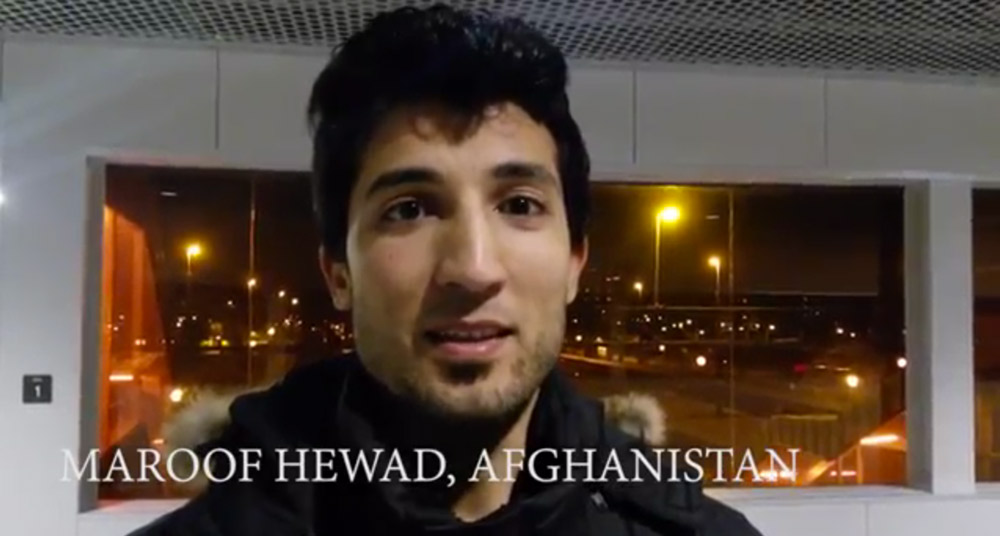A lecture in October last year on Happiness in Bhutan was an eye opener. Next, it was crucial to talk to students of Lund University.
In October, 2014, the South Asian Student Association, in collaboration with the Swedish South Asian Studies Network, organised another Fika Without Borders. The lecture focused on happiness and the political structure of Bhutan.
Bhutan recognises itself as the world’s happiest country. In 1972, Bhutan established the idea of Gross National Happiness. The four pillars of GNH include sustainable development, promotion of cultural values, conservation of natural environment and good governance. Dr. Winnie Bothe, the speaker for the evening, explained her perspective, ‘My three main arguments is that Gross National Happiness uses a particular understanding of the civilizing process, that local governance is a main channel for civilizing local citizens and finally that this is far from a neutral process, one that is heavily induced with power and control’.
Dr. Bothe explained that she was interested in exploring happiness through the principles of good governance in Bhutan. Good governance as a pillar, interacts directly with the citizens of a country. In her view, ‘I think what Gross National Happiness is really about is the mission to ensure the security and sovereignty of the country. It is not just about development, it is about ensuring that Bhutan survives. It is a tiny state in between India and China, the two most populous countries in the world. So what do you do to survive? You promote your cultural uniqueness and that is exactly what GNH is all about. It is the promotion of a unique heritage’. According to Dr. Bothe, the inclusion of other pillars are just for GNH to ‘sound nice’.
As per Dr. Bothe’s explanation two thoughts become evident. First, Bhutan, is portraying Happiness through an orientalist idea of civilization. It is a spiritual construct in contrast to the Western ‘materialistic cultures’. Bhutan uses Buddhist values, which in reality are heavily politicised. This means, promotion of Happiness is based on a hierarchal system where the state dominates. The state promotes religious and social values, which includes code of conduct and manners, based objectives to promote happiness.
Second, benefitting the state, Bhutan uses Happiness as a sales pitch to promote tourism and culture. Bhutan shows itself as non-materialistic. Although, in reality, when Westerners visit Bhutan, a ‘country of happiness’, they spend a lot of money which goes into the hands of the political class. Dr. Bothe explains, ‘It is all in our heads. They are no less materialistic than we are. I think it is a total construct and is very remote from what Buddhism in Bhutan really is.’ She went on to stress that this construct is ‘the world’s best brand’.
This lecture triggered a further thought. It is not possible that an entire country, so simplistic in its way of living, is using emotion as a tool. I went about talking to students of Lund University on camera. The goal was to inquire into the complexity of happiness at the individual level. Hereby, I provided each of the students to respond within 8 seconds. The question I asked each of the 30 students was simple. The answers, even more basic –
It is very interesting that each of the students could answer very effectively within the given time restriction. It went to show that if one had to define happiness for themselves, the procedure of self-reflection would prove a lot more time consuming than producing the answer itself. The answer can easily be produced in one sentence, which does not require even 8 complete seconds.
Looking at replies of the respondents, two observations are evident. One, all answers can easily be categorised as either head or heart dominated answers and two, the question was so basic, that the exercise forced the respondents to think about themselves. It is not an everyday exercise for us to think of ourselves.
As students we are lost in accomplishing our daily, medium term and long term goals. Probably, there is a reason for the brightest ideas being the most basic idea. If, we as students, can answer the most basic questions that define ourselves, then there should be no reason that there could be anything preventing us from achieving all that we desire.
In the spirit of self-reflection try this out – answer a question – what is my interest and what is my strength, strictly, one word each.






